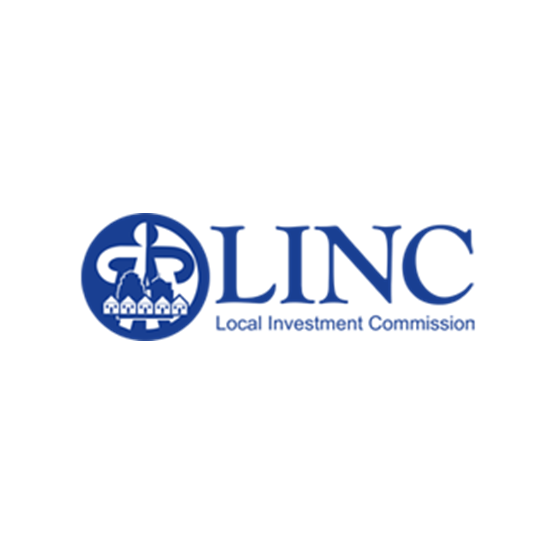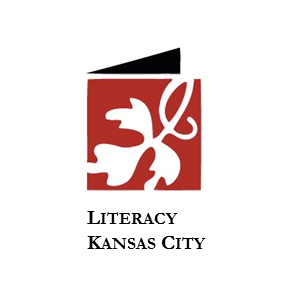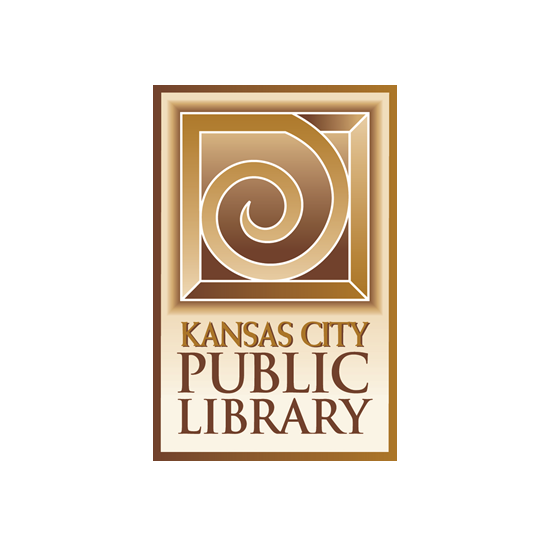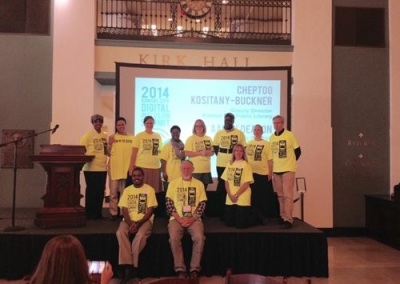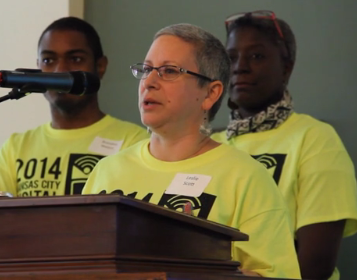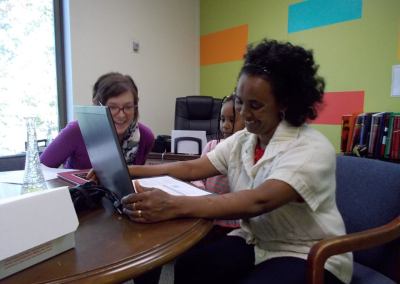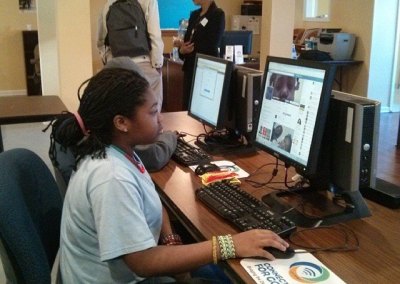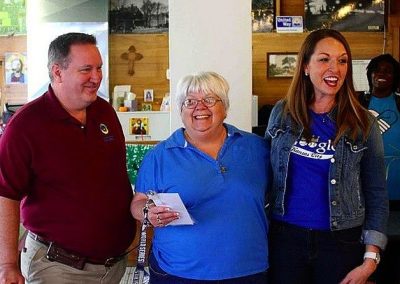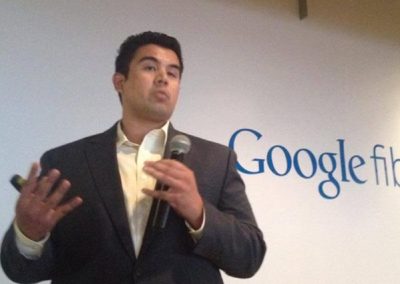Home Internet Access
%
of Fiberhoods connected
Low-cost computers to families
Students Enrolled in Training Classes
Wireless mesh networks
The Opportunity
High-speed fiber cannot reach its full potential if large segments of our population are excluded from its benefits. We must ensure that all residents — especially those in disadvantaged groups — have access to technology and the equipment and skills to use it. The need to bridge the digital divide is inherent in most, if not all, of the plays in this playbook. Internet access helps pave the road to success in today’s society, and people who don’t have broadband access may be isolated from many of the opportunities afforded to those who do.
The Solution
Pilot projects addressing Digital Inclusion should not only provide high-speed Internet access in locations that will help drive community development and strengthen neighborhoods, but also provide the education and training that residents need to develop digital literacy skills. We recommend the following steps to ensure digital inclusion in the Greater Kansas City region:
- The leadership network should identify existing community-based programs and groups that are working on this issue and determine how to support them moving forward.
- Kansas City, Mo. and the Unified Government should develop strategies for inclusive public access at anchor institutions connected to Google’s high-speed fiber network, such as schools, community centers and libraries.
- Work with organizations such as One Economy on longer-term strategies for digital inclusion.
Benefits & Outcomes
- Impact the regional economy by helping residents gain employment skills.
- Higher quality of life through improved access to public services and social, financial, cultural and informational resources.
- Demonstrate measurable increases in technology access and digital competence.
Partners
